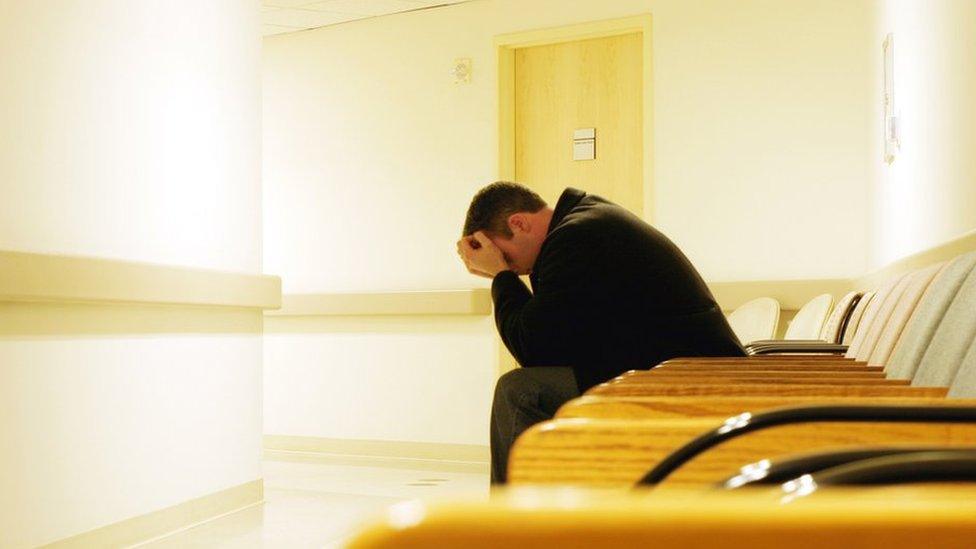Support call over mental distress detentions
- Published

Reported use of place of safety orders by police to detain mentally distressed people has risen nearly nine-fold over the last decade, figures suggest.
The orders allow a person to be held for up to 24 hours so they can be assessed by a doctor.
The Mental Welfare Commission (MWC) praised the professionalism of officers but said such cases were taking up large amounts of police time.
The commission called for more support from health and social care staff.
Place of safety orders are intended to allow police to safeguard people who are distressed, but who do not need to be detained under the Mental Health Act.
The MWC has been looking into the issue after notifications on the use of place of safety orders rose from 130 in 2006-07 to 1,133 in 2016-17.
Regional variations
The study looking at the use of the orders over a three-month period found the vast majority of people were taken to hospital for assessment, although in 14 cases - 12 of them in Tayside - they were held at a police station.
The report identified significant variation in the use of the orders in different areas, with NHS Highland having the highest rate, followed by Orkney and Grampian.
The research, which included interviews with 43 police officers, also noted that some felt the local mental health service refused to assess people who had been drinking.
MWC chief executive Colin McKay said: "Our interviews with the police and with people who had been subject to a place of safety order revealed a high level of care and compassion from the officers involved.
"We welcome this, and commend Police Scotland's approach.
"Reasons for the rise in numbers could not be determined. It may be due to better reporting of the statistics by the police, although it could simply be due to a greater use of the orders."
'Last resort'
Police Scotland said a police station would only be used as a place of safety as a measure of last resort - and that any mental health assessment would be carried out by an NHS professional.
NHS Tayside, however, said of the 12 cases highlighted in the report, it was unable to identify any recorded contact with mental health services in 11 of those cases.
In the 12th case, a mental health assessment was requested the following day, it said.
The MWC has made a number of recommendations to health boards, Police Scotland and the Scottish government.
A Scottish government spokeswoman said: "As set out in our Mental Health Strategy, we are committed to working with both the police and health service to strengthen support for people with mental health problems, including through the work of our dedicated Health and Justice Collaboration Improvement Board."